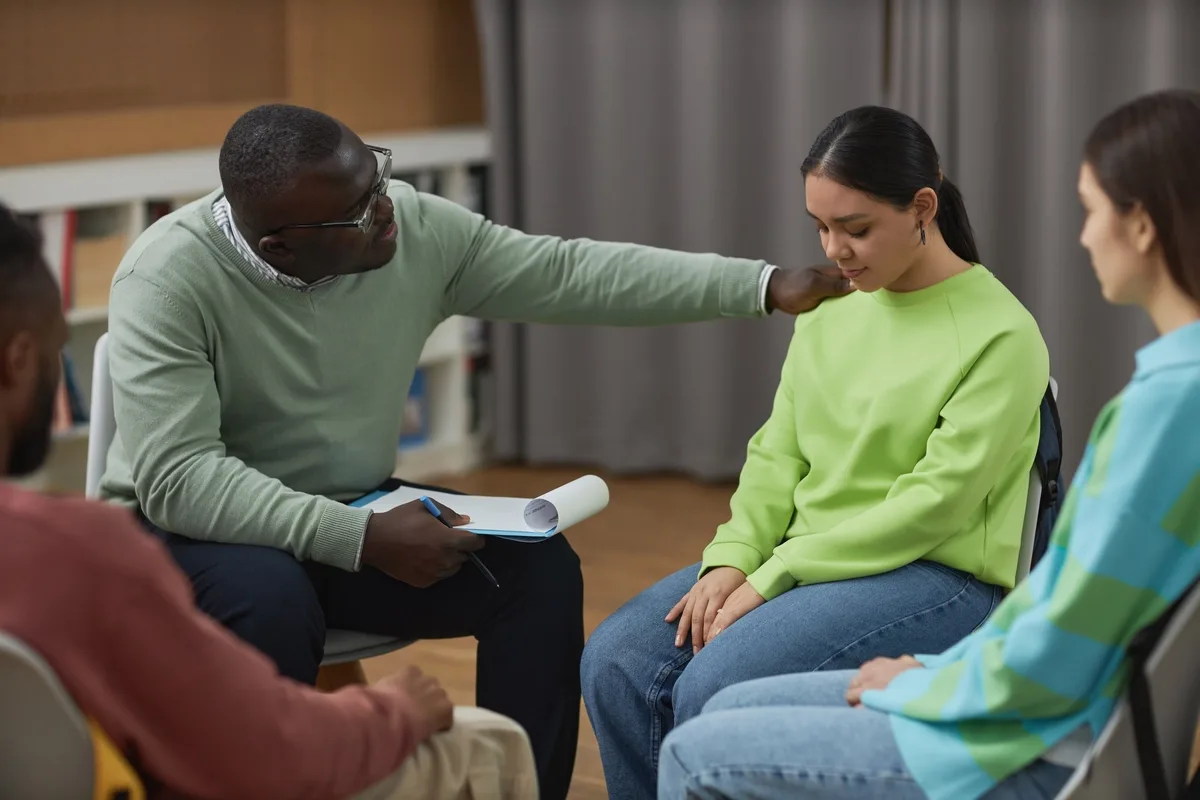24/7 Helpline:
(866) 899-111424/7 Helpline:
(866) 899-1114
Learn more about PTSD Treatment centers in Heflin
PTSD Treatment in Other Cities

Other Insurance Options

Optima

BHS | Behavioral Health Systems

Meritain

Ceridian

CareSource

EmblemHealth

Ambetter

Horizon Healthcare Service

American Behavioral

Oxford

Medical Mutual of Ohio

Highmark

WellCare Health Plans

Absolute Total Care

United Health Care

Private insurance

Regence

Holman Group

GEHA

Carleon


Intensive Outpatient Care
Intensive Outpatient Care is a private rehab located in Edwardsville, Illinois. Intensive Outpatient...

DeRousse Counseling and DUI Services
DeRousse Counseling and DUI Services offers an outpatient program for substance abuse and addiction ...






Addiction Treatment Strategies
Addiction Treatment Strategies is a private rehab located in Edwardsville, Illinois. Addiction Treat...











































